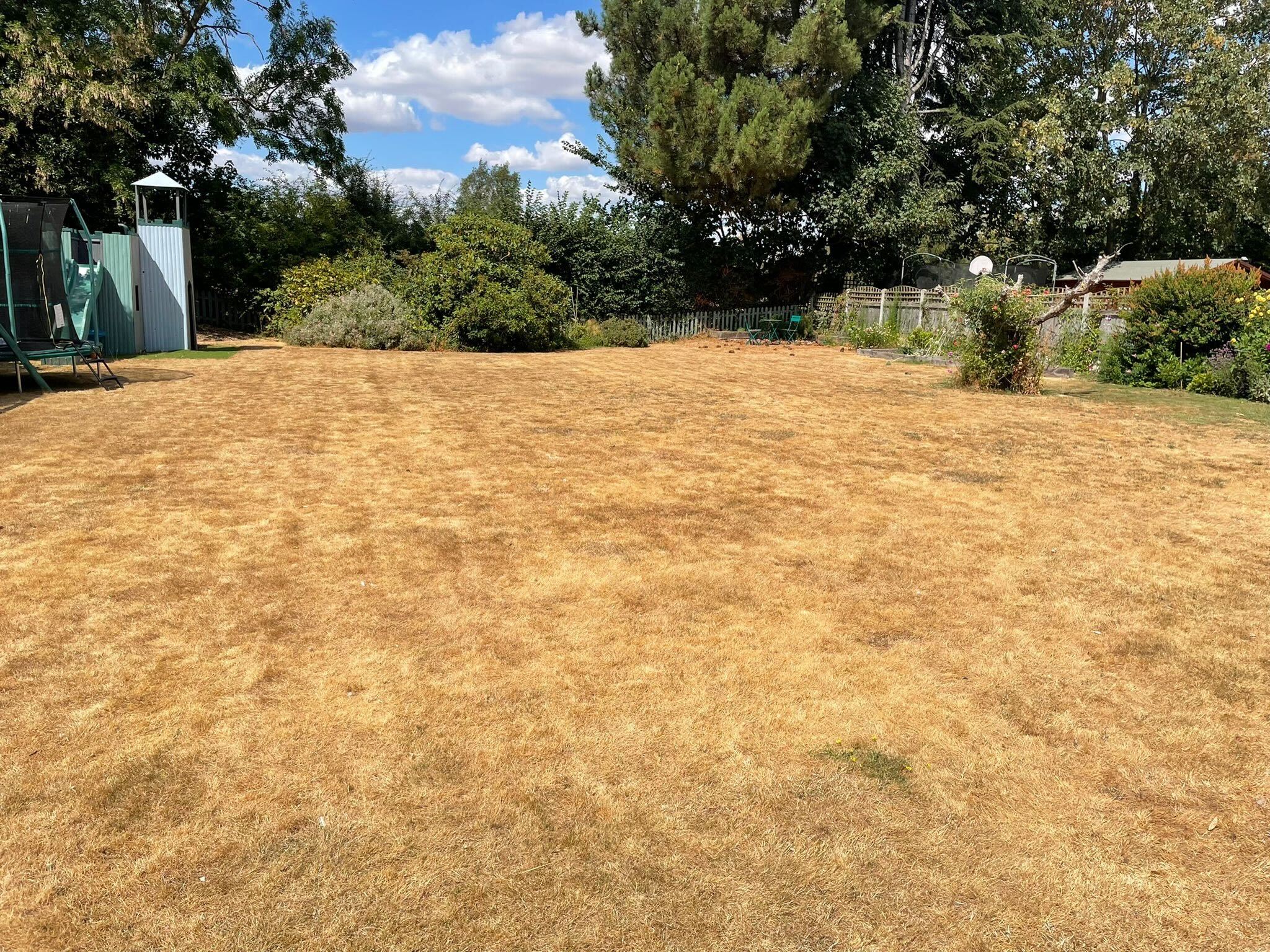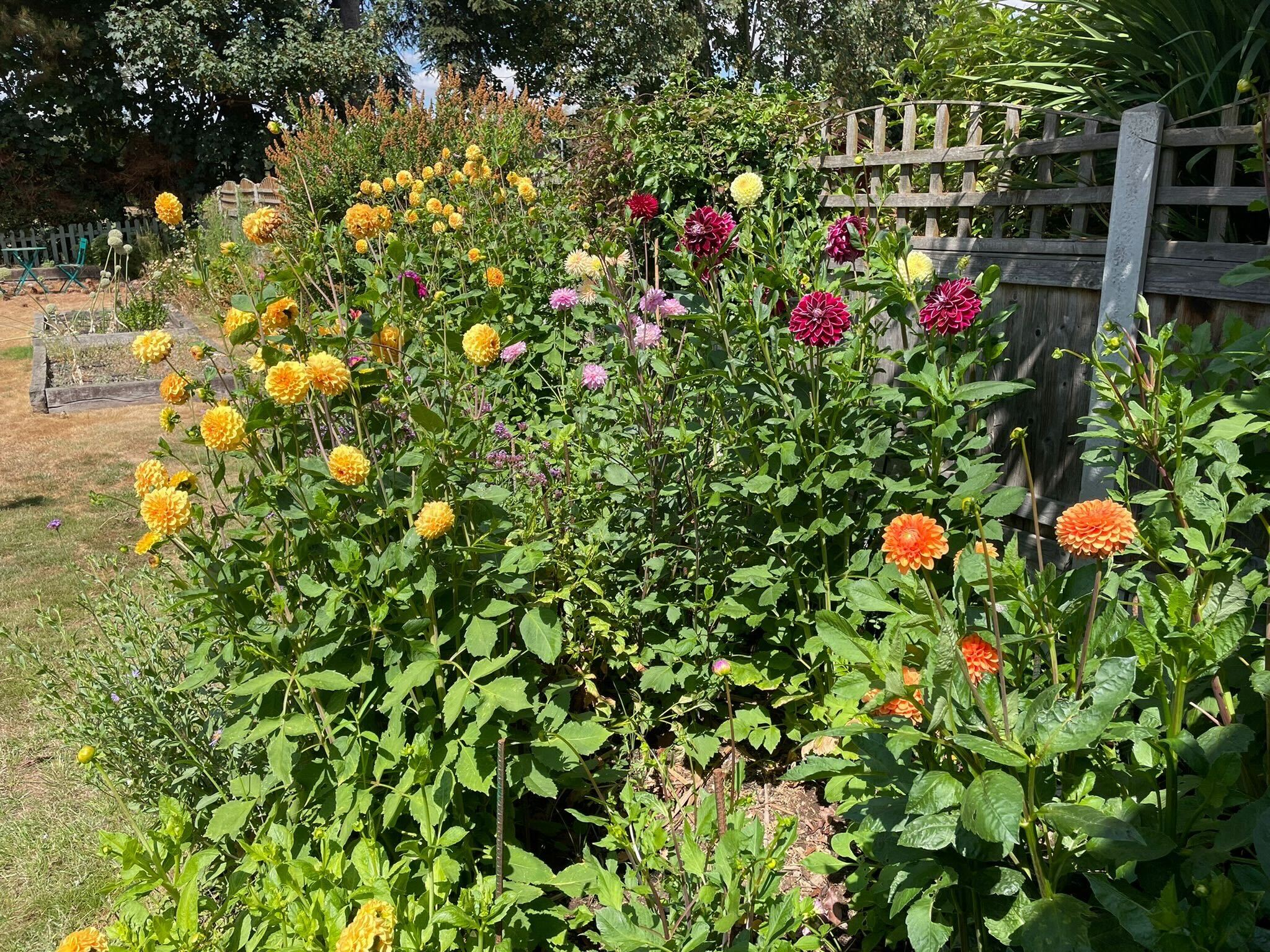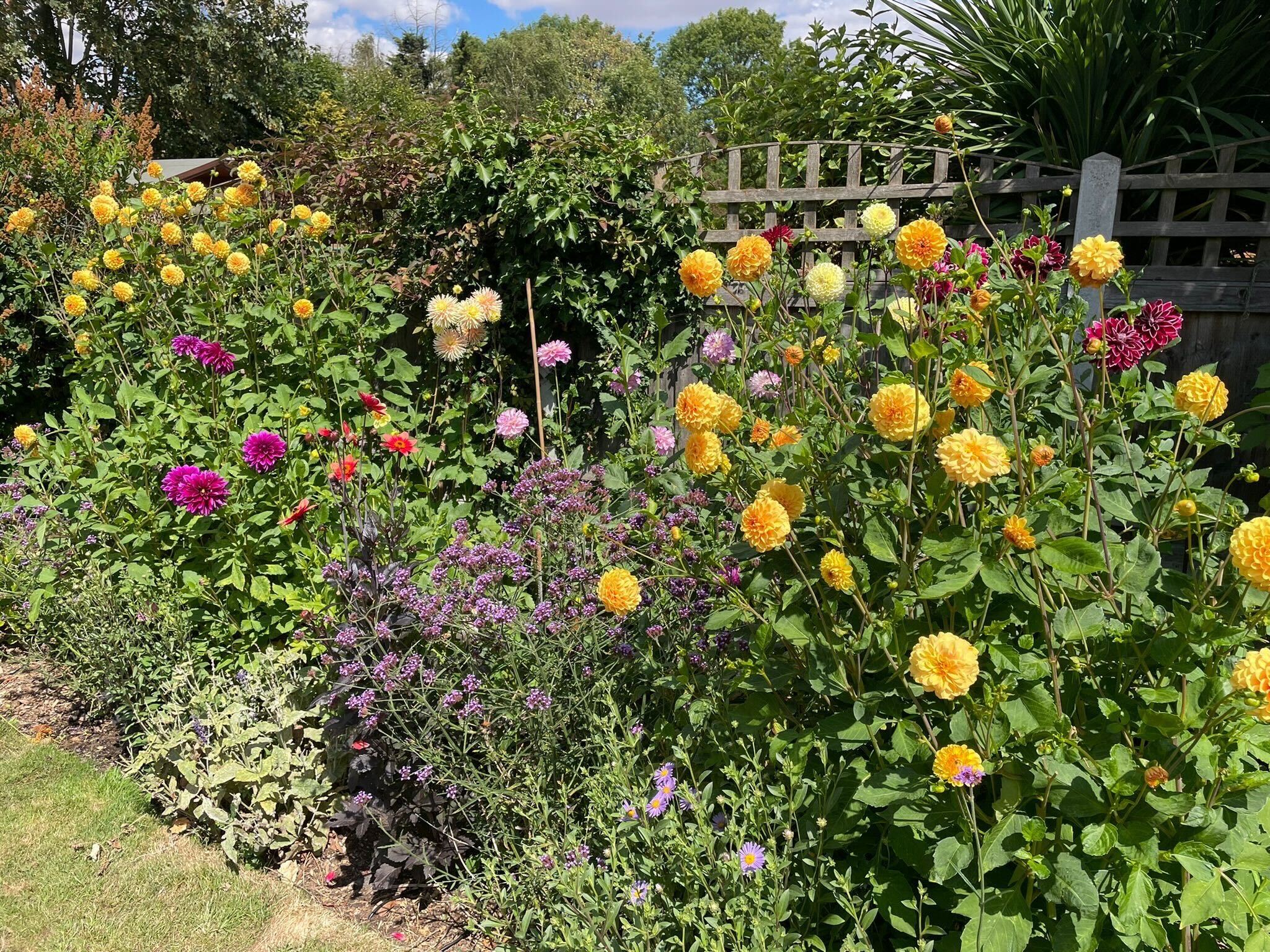Last year, I almost killed myself restoring my lawn. Quite literally. I very, very nearly dropped a 103kg hollow tine aerator directly on to my outstretched leg while getting it out the car. It would certainly have snapped it in half, and given I’d tried the neighbours’ doors just seconds before, in a fruitless search for someone to help me, I know for a fact there was no one around.
I would have just bled out alone on the driveway, left to become one of those supposedly hilarious statistics. “Did you know that in the UK you’re actually less likely to bitten by a shark than you are to be killed by a hollow tine aerator?”
Well, my lawn didn’t break my leg but it has broken my heart. It’s had the full works, for three full years now: aeration, scarification, overseeding, fertilising, the whole lot. And now it’s dead. Totally dead. I can’t look at it.
Last summer, it was a baize of verdant splendour. Footballs rolled across it as though bound for the middle pocket at the Crucible Theatre.
This year, it looks more like the kind of place that Mexican meth dealers get driven out to to be murdered in Better Call Saul. Last week I watched a squirrel digging up a nut under my daughter’s swing and for a second I thought he was looking for Walter White’s stash.
They say grass is robust. That lawns go in to hibernation mode and then come back. I can’t see this coming back. Walk 10 steps across it and the bottom of your flip-flops are covered in straw.
This is more than partially my own fault, of course, but I have no regrets. I could have watered it but I simply refuse to. It can’t be justified, either on cost grounds or environmental.

Around the country, there will be hundreds of thousands of lawn bores just like me who will be devastated by the imminent hosepipe ban. Many will simply ignore it.
But all, absolutely, is not lost. There is a happy ending, of sorts. Surrounding my lawn on two sides are large and varied flowerbeds. The patio is covered in pots, as is a little pebbled area behind the shed. All of these get watered every day, twice a day, a strict regimen that the hosepipe ban is powerless to prevent. Why? Two words: drip irrigation.
It is a little known fact that micro-irrigation systems are exempt from hosepipe bans. As long as the water flow is controlled by a pressure-reducing valve (hozelock make one) and the plants are watered by drip irrigators, you are in the clear.
Drip irrigation is also magnificent. In the summer of 2019, two years before the lawn insanity began, I installed my own. Buried in the flower beds, and concealed by the house are lengths of 13mm LDPE hosepipe, the feeder hose. Whenever I plant a new plant, I punch a hole in this hosepipe with a special hole punch, and run a thin length of 4mm hose off it to wherever the new plant is, which I then connect to an adjustable micro sprinkler, called a shrubbler.

One flower bed, the prize one to be honest, contains eight peonies, a hydrangea, three salvias, three asters, three verbena bonariensis and 38 dahlias. All of these are watered individually, just a few drops for a few minutes a day.
All these feed back to a cheapish (£90) solenoid valve box called an Ezyvalve 4, hidden behind the shed. This is also connected to a cheapish (£99) smart irrigation controller made by netro. This means the garden entirely waters itself. It also monitors the weather via the internet, so when it has rained, is raining, or is forecast to rain, watering is suspended.
It also means that if you happen to be on holiday, as I was, when your garden is subjected to two consecutive days of plus-40-degree heat, you can give it some much needed extra watering while queuing up to buy an ice cream hundreds of miles away.
To keep up to speed with all the latest opinions and comment sign up to our free weekly Voices Dispatches newsletter by clicking here
I did all this, mainly because neither I nor my wife were ever home from work in time to water the garden. So it was a bit odd, when a once in a 100 year pandemic came along and no one left their house for about two years.
Some people find watering their plants at dusk relaxing and therapeutic. I’m sure I would have done. But instead I had inadvertently and quite literally reduced myself – with a pressure-reducing valve – to walking around the garden in the last of the light, watching it water itself.
But I absolutely have no regrets. And especially not now the hosepipe ban has come along. When I got back from our holiday to inspect the post-heatwave damage, I found a patio full of lush hydrangeas in pots, and the dahlia collection in magnificent health. For as long as I didn’t look at the lawn, my heart sang.
But that will come back too, you know, with a bit of autumn overseeding. Twenty twenty-two is the driest year in a hundred years. Twenty twenty-three probably won’t be. The force that through the green fuse drives the flower is having a gap year and tedious garden dads should not stand in its way.
But we can outsmart it.





Join our commenting forum
Join thought-provoking conversations, follow other Independent readers and see their replies
0Comments